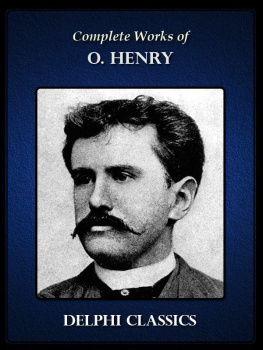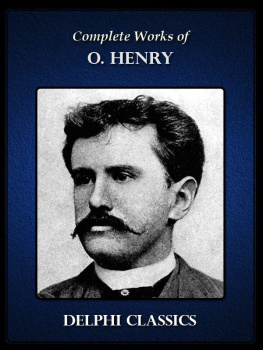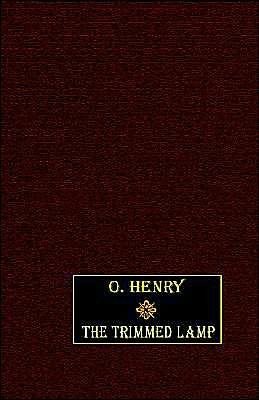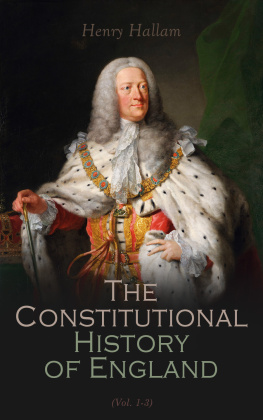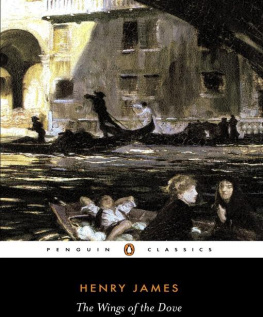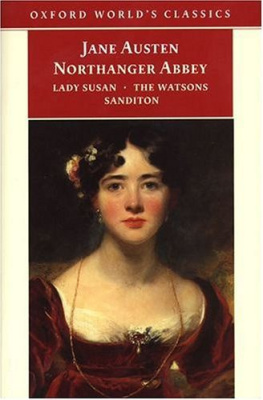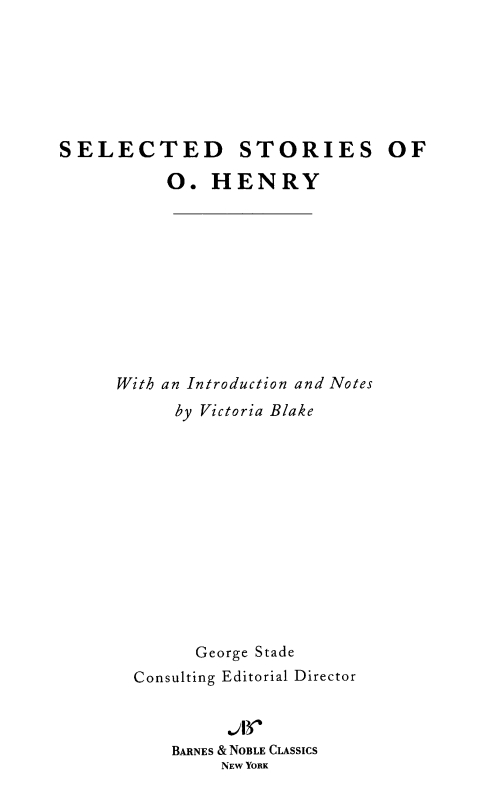
Table of Contents
FROM THE PAGES OFSELECTED STORIES OF O. HENRY
In time truth and science and nature will adapt themselves to art.
(From The Plutonian Fire, page 7)
Life is made up of sobs, sniffles, and smiles, with sniffles predominating. (From The Gift of the Magi, page 25)
No man existed who had money enough to wear so bad a hat as his.
(From The Caliph, Cupid and the Clock, page 74)
There is this difference between the grief of youth and that of old age; youths burden is lightened by as much of it as another shares; old age may give and give, but the sorrow remains the same.
(From The Count and the Wedding Guest, page 83)
Where to go for wisdom has become a question of serious import. The ancients are discredited; Plato is boiler-plate; Aristotle is tottering; Marcus Aurelius is reeling; sop has been copyrighted by Indiana; Solomon is too solemn; you couldnt get anything out of Epictetus with a pick. (From The Higher Pragmatism, page 93)
True adventurers have never been plentiful. They who are set down in print as such have been mostly business men with newly invented methods. They have been out after the things they wantedgolden fleeces, holy grails, lady loves, treasure, crowns and fame. The true adventurer goes forth aimless and uncalculating to meet and greet unknown fate. (From The Green Door, page 117)
We are grown stiff with the ramrod of convention down our backs. We pass on; and some day we come, at the end of a very dull life, to reflect that our romance has been a pallid thing of a marriage or two, a satin rosette kept in a safe-deposit drawer, and a lifelong feud with a steam radiator. (From The Green Door, page 118)
Each plank in the floor owned its particular cant and shriek as from a separate and individual agony.
(From The Furnished Room, page 155)
In dress, habits, manners, provincialism, routine and narrowness he acquired that charming insolence, that irritating completeness, that sophisticated crassness, that overbalanced poise that makes the Manhattan gentleman so delightfully small in his greatness.
(From The Defeat of the City, page 170)
He seemed to be made of sunshine and blood-red tissue and clear weather. (From The Caballeros Way, page 205)
His thin, white fingers flew like some expert musicians upon the keys of a piano. He dumped the gold upon the counter with a crash, and the coins whined and sang as they skimmed across the marble slab from the tips of his nimble digits.
(From Friends in San Rosario, pages 265-266)
In the case of human beings, friendship is a transitory art, subject to discontinuance without further notice.
(From Telemachus, Friend, page 324)
Upon what shallow waters can the bark of passion remain afloat!
(From The Renaissance at Charleroi, page 350)
People in real life dont fly into heroics and blank verse at emotional crises. (From Proof of the Pudding, page 387)
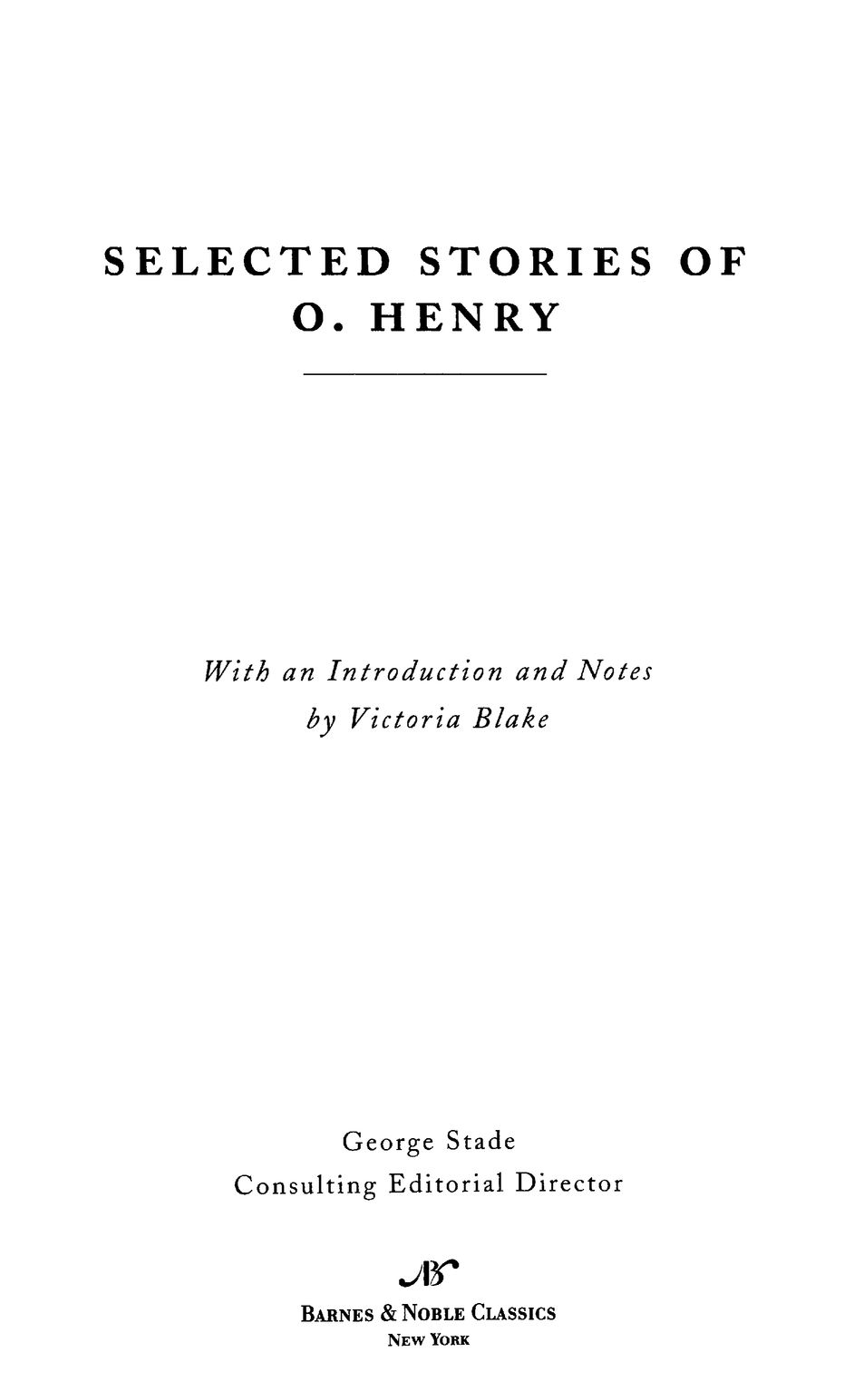
O. HENRY
William Sydney Porter was born on September 11, 1862, in Greensboro, North Carolina. His mother died when he was three years old, and his father, a doctor and inventor, took him to live with his paternal grandmother and aunt. William received his only formal education at a private school run by his aunt, and it was she who encouraged his interest in art and literature. By age fifteen, he had left school to work as a pharmacist in his uncles drugstore. Within four years, he had received a license from the North Carolina Pharmaceutical Association to practice pharmacy.
In 1882, alarmed by early signs of his own tuberculosis, Porter headed west to La Salle County, Texas, in search of drier weather. While working on a sheep ranch, he continued to draw and develop his writing style, observing the details of ranch life he would later recount in such stories as The Hiding of Black Bill (1907). In 1884 Porter moved to Austin, Texas, where he met and fell in love with Athol Estes, the stepdaughter of a wealthy businessman. Athols parents were not impressed with Porter, and the couple eloped in 1887. Their daughter, Margaret, was born two years later.
In Austin, Porter worked as a draftsman in the Texas Land Office from 1887 to 1891, and then as a bank teller with the First National Bank of Austin from 1891 to 1894. Toward the end of his tenure at the bank, he acquired a used printing press and founded a humorous weekly magazine, The Rolling Stone, which he single-handedly wrote, printed, and published. While the magazine enjoyed early success, its burlesque and political satire offended many readers. Financial difficulties forced the magazines closure a year later. Porter then moved his family to Houston, where he worked as a reporter, columnist, and cartoonist for the Houston Post.
In 1894 a bank audit discovered discrepancies in Porters accounts, and over the next several years federal prosecutors investigated his case. He was arrested and charged with embezzlement in February 1896. Facing trial, Porter fled to Honduras, an experience he later chronicled in stories collected in Cabbages and Kings (1904). But his life on the lam was short-lived. When a year later he learned that Athol was dying of tuberculosis, he returned to Austin to be at her deathbed. Following Athols death, Porter was sentenced to five years in the federal penitentiary at Columbus, Ohio.
In prison Porter began to publish stories under the pseudonym O. Henry. For his characters, he drew from his own wide experience, writing about tramps and millionaires, shop girls and southern aristocrats, cops, thieves, cowboys, and con men in stories that often have a surprise twist, or snapper,Porters trademark ending.
After serving three years, Porter was released from prison for good behavior. In 1902 he moved to New York City, and his popularity as a writer soared. He wrote prolifically during this time, publishing a story a week for the Sunday New York World, as well as selling pieces to several other magazines.
Sadly, Porters creativity proved more robust than his health. He had suffered from tuberculosis and alcoholism for most of his adult life, and his illness and hard living finally caught up with him. William Sydney Porter died in New York on June 5, 1910, at age forty-seven. Though O. Henrys life was brief, his ten-year literary career had produced hundreds of stories and garnered him worldwide acclaim.
THE WORLD OF O. HENRY AND HIS STORIES
| 1862 | On September 11 William Sydney Porter is born in Greens boro, North Carolina, to Mary Jane and Dr. Algernon Porter. |
| 1863 | President Abraham Lincoln issues the Emancipation Proc lamation. |
| 1865 | Mary Jane Porter dies, leaving young William and his brother in their fathers care. Dr. Porter takes the boys to live with their paternal grandmother and aunt. Lincoln is assassinated. |







